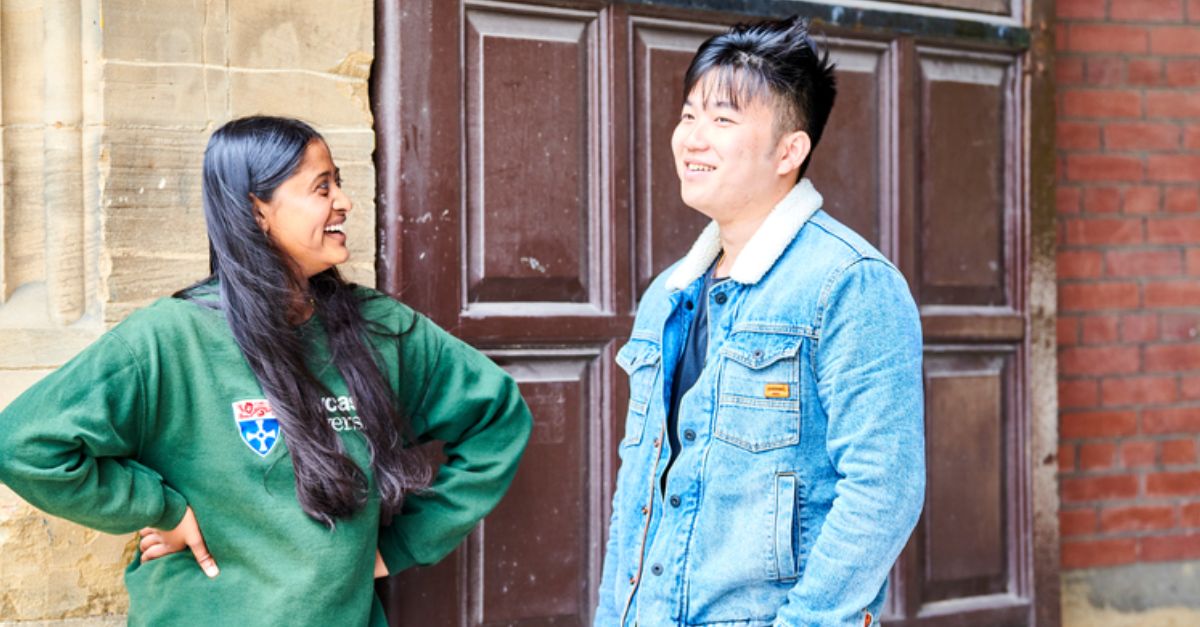An international student's guide to late applications & Clearing 2025
25 February 2026 | By: Amy Cousins | 2 min read
Think you've left it too late to study in the UK and apply to Newcastle University this year?
Or perhaps you're worrying about your exam results, and don’t know how to make your dream of studying at a Global Top 140 university come true?
In fact, not only do you still have plenty of time to apply to us, we've shared a handy guide below to take you through the process.
Contents:
You can apply directly from 1 July
From 1 July, you can apply to us online by completing our direct application form.
You can search our courses to find which course you'd like to apply for and check the English Language and academic qualifications accepted from your country.
Once you're ready to apply, use the direct application form link on our website. You'll be asked to include:
- information about you, including your name, nationality, and address
- your course selection and qualifications
- copies of your academic and English Language qualifications that have been translated into English
What happens next?
If you meet our requirements, we'll be in touch with an offer. We'll then ask you to:
- accept your offer by completing our acceptance form – you must do this by the deadline we'll give you, so we can guarantee your offer
- apply for accommodation after meeting all the conditions of your offer

Applying later? Call or chat to our team
Like most UK universities we also set up a hotline so you can contact us to talk about degree programme vacancies.
From Tuesday 1 July onwards, you can call our International hotline number +44 191 222 5000. It will be open 10:00-12:00 and 14:00-16:00 weekdays only (British Summer Time).
From Thursday 14 August, opening hours are:
- 14 August - 08:00-18:00
- 15 August - 08:00-17:00
- 16 August - 09:00-15:00
- 18 August onwards - 10:00-12:00 and 14:00-16:00
From Monday 7 July – Friday 11 July, if you have your International Baccalaureate, call our hotline number +44 191 222 5106. This line will be open from 10:00–12:00 and 14:00–16:00 (BST).
We also offer a ‘live chat’ function, allowing you to type out your questions and get written replies, if this is easier for you.
Using our hotlines/live chat
When you get in touch with us, our advisers will ask if you have a UCAS ID. You'll only have this if you originally applied to study in the UK through UCAS – the Universities and Colleges Admissions Service.
If you have a unique Clearing ID, they'll ask for this, too. You'll only receive a Clearing ID if you applied through UCAS but are not holding any university offers.
The ID numbers help our admissions staff look up your details, but don’t worry if you don’t have these – our advisers will still be able to guide you through the application process.
If English is not your first language, our advisers will also chat to you about your academic qualifications and English proficiency.
If you meet the entrance requirements of the course you're interested in, they should be able to make you an informal offer straight away. You'll then get an email explaining your next steps and how to accept your offer from us by adding it to your UCAS application.
Once your offer is confirmed, it'll show as an acceptance on the 'Choices' page of your application in UCAS Hub.
Top tips
Below, we've listed our top tips for applying to us.
- Get in touch as soon as you can after you receive your results. You can also apply through UCAS as soon as you receive them, too.
- Check the entrance requirements of the course you're interested in. At Newcastle, we accept a broad range of international and EU qualifications – visit our undergraduate course profiles for more detail. Our entry requirements may vary from those published, so please call or chat to check.
- If English is not your first language you must have a recognised English language test or qualification. Find out what we accept HERE, or in our undergraduate course descriptions.
- Know how you're going to fund your studies – you may be asked about this.
- To study in the UK you'll need to apply for a Student visa, so make sure you understand how this process works.
- Write down some of the questions you might want to ask when you get in touch with our hotline or live chat advisers. Keep a notepad and pen, or laptop handy, so you can take down the answers
Find out more:
- Need to apply for a Student visa? Read our blog.
- Wondering why you should choose Newcastle? Find out.
- Explore how much it costs to study in the UK.

We've been voted top in the UK for student life in the WhatUni Student Choice Awards 2025 - trusted recognition from real students.